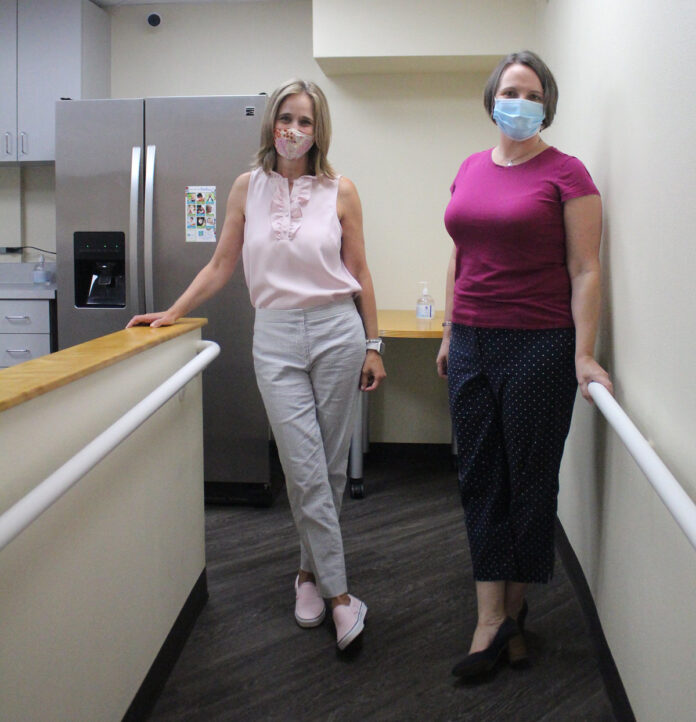Episcopal Community Services, headquartered in National City, is opening a new Family Engagement Center at 310 Third Avenue in Chula Vista sometime between late August and early September.
ECS Chief Executive Officer Elizabeth Fitzsimons and Board President Jessica Ripper say the new location will be used for both Para Las Familias, an outpatient behavioral and mental health program that specializes in providing services to underserved South Bay communities, and their Head Start program that offers early childhood and family education at no cost to qualifying families.
“Part of being here in Chula Vista is to increase access through visibility,” Fitzsimons said.
The new suite of rooms, immaculate, is brightly lit. A tower of cubbies stands in the kids’ waiting room, newly stocked with neatly organized children’s books and play-dough, as well as a tree of costume hats, all to be used in therapy sessions.
A three-story dollhouse takes up half the wall in a second room, a pastime for the children they anticipate will tag along with parents during enrollment and will need something to keep them busy while paperwork is completed.
The community room, with its basic grid of tables and chairs, is near an efficiently laid-out kitchen based on pre-COVID times where children that were enrolled in the Head Start program all ate together, family style and will ostensibly do so again when the pandemic draws to a final close.
“COVID, Ripper said, was something of “an opportunity for our regions and nation to restart, see who was succeeding and who was left behind”.
Among other observations, the ripple effect of multiple challenges was clearly outlined during the pandemic.
For example, “kids can’t learn if they don’t have good nutrition,” Fitzsimons said.
Throughout the pandemic, volunteers used food distribution as an opportunity to distribute social services program information to families at one point of contact.
“It is all related. When we need to solve for ‘x’ but it is interdependent on ‘y’ and ‘z’, how do we solve for that? What is our role in that?” Ripper said.
Technology, and the challenges of not having access to smart technology also came to light during the pandemic. Thanks to COVID-relief grant funding, the organization was able to provide 900 tablets to individuals in the community.
Fitzsimons describes the organization as flexible and goal-oriented, dedicated to supporting all kids and families.
Recently, the organization helped migrant children in conjunction with South Bay Community Services during the March 2021 surge that included hundreds of undocumented immigrant children who were temporarily housed at the San Diego Convention Center.
Sometimes, Ripper said, they were traveling with older siblings so ECS provided help for caregivers in addition to young children.
“Often they were traveling alone for long distances, experienced trauma on the way here and needed trauma-informed care,” Ripper said.
At the same time, she said, the organization was “intentional about caring for our own therapists,” standard practice across all their programs, especially their substance abuse counselors who work at other locations.
“We welcome all, we serve all. We always try to meet people where they are,” Ripper said, not just for the benefit of clients but also for the benefit of volunteers.
After all, she reasons aloud, nobody wants to feel ‘I’m helping you’ rather than walking with someone on their journey.
“We take the idea of service very seriously,” Ripper said.
Visit www.ecscalifornia.org to learn more.















